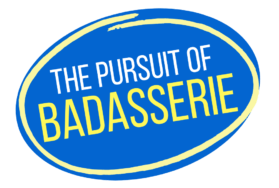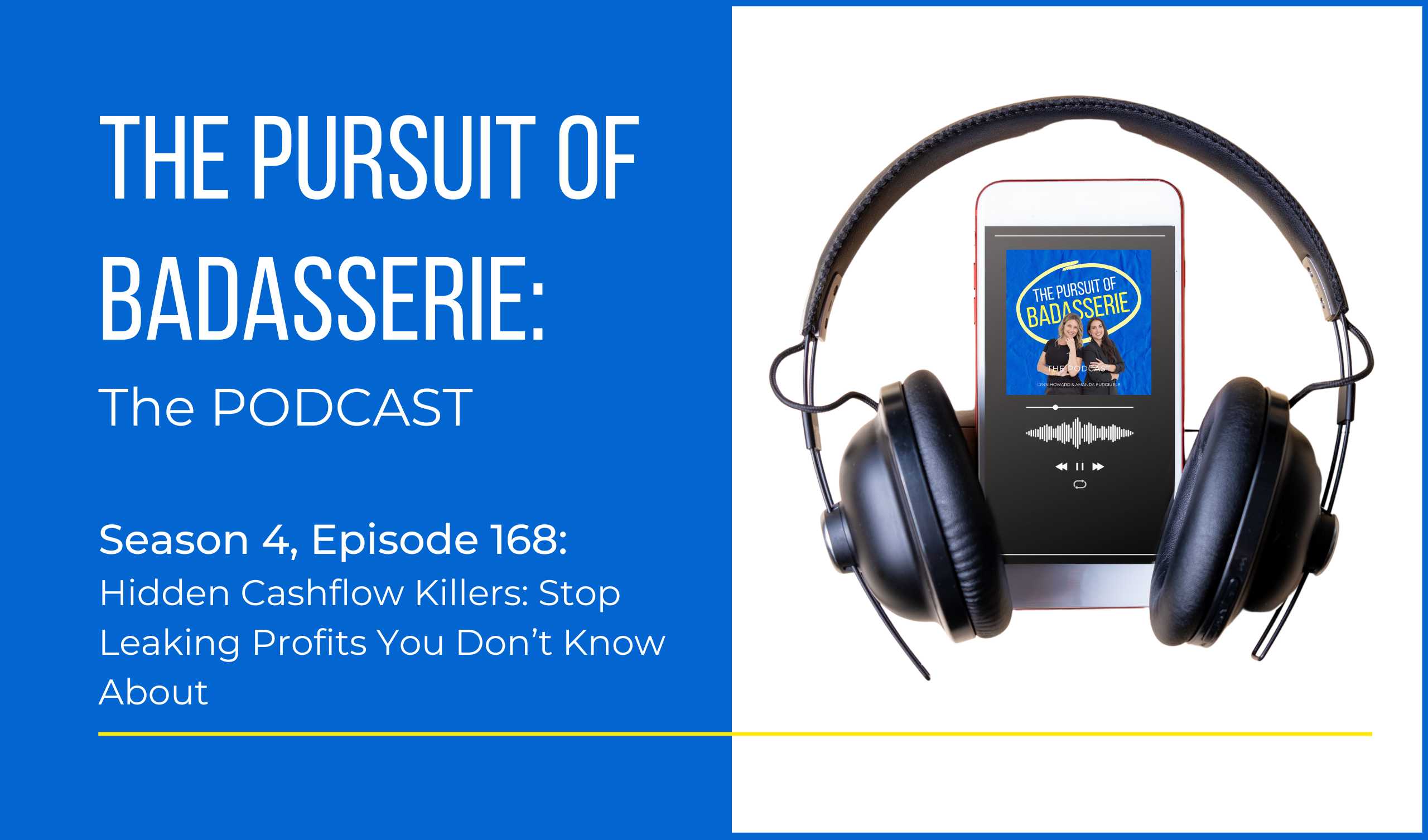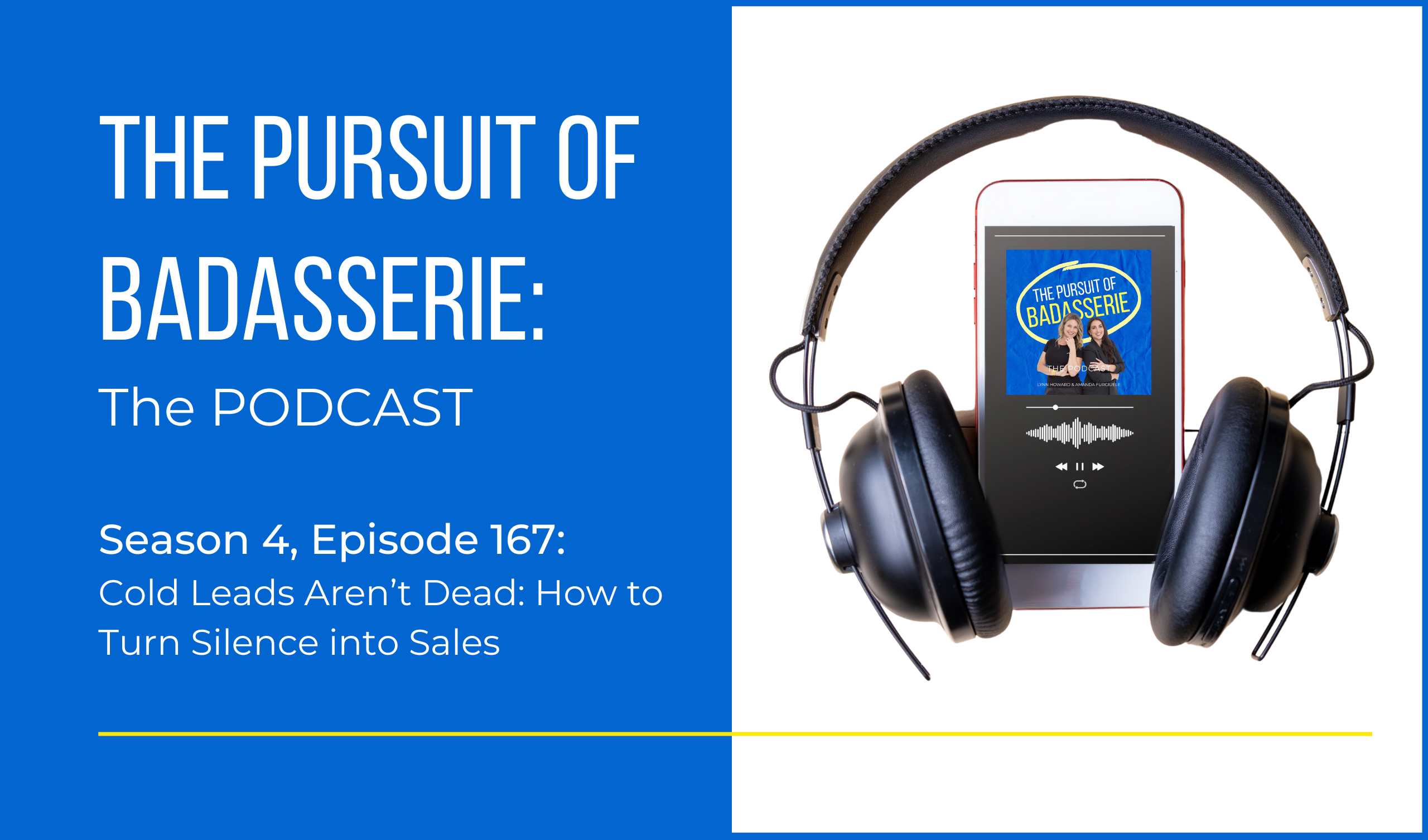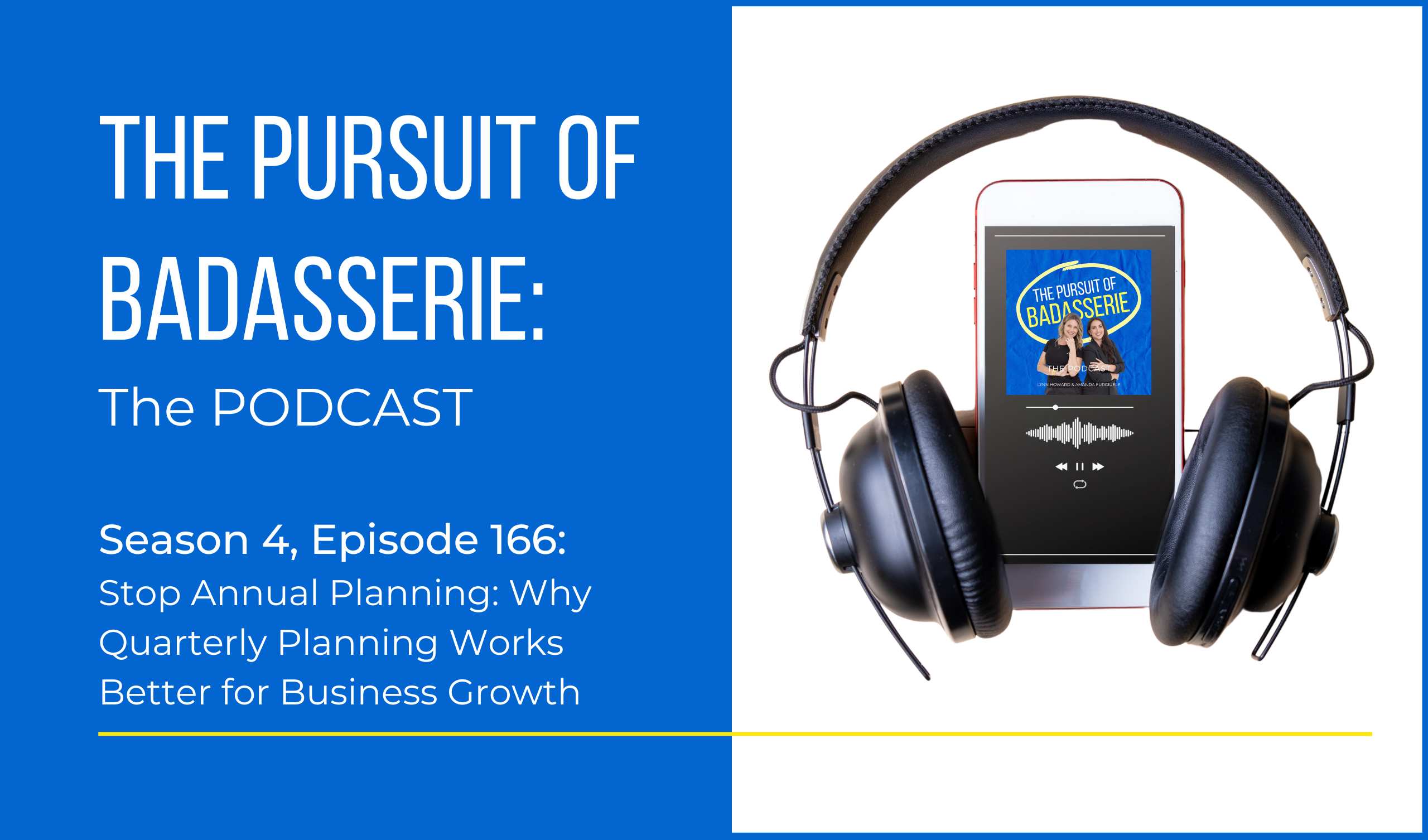Episode 157: Riding the Silver Tsunami: Why Now Is the Time to Buy Boomer Businesses
We’re in the middle of one of the biggest business opportunities of our lifetime, and most entrepreneurs are sleeping on it. The “Silver Tsunami” is here—millions of Baby Boomer–owned businesses are hitting the market as their owners retire.
In this episode of The Pursuit of Badasserie: The Podcast, we dig into why buying an existing business may be the smartest, fastest way to build wealth and stability. Instead of starting from scratch, you can step into a business with established revenue, employees, and community goodwill—then modernize, grow, and take it further.
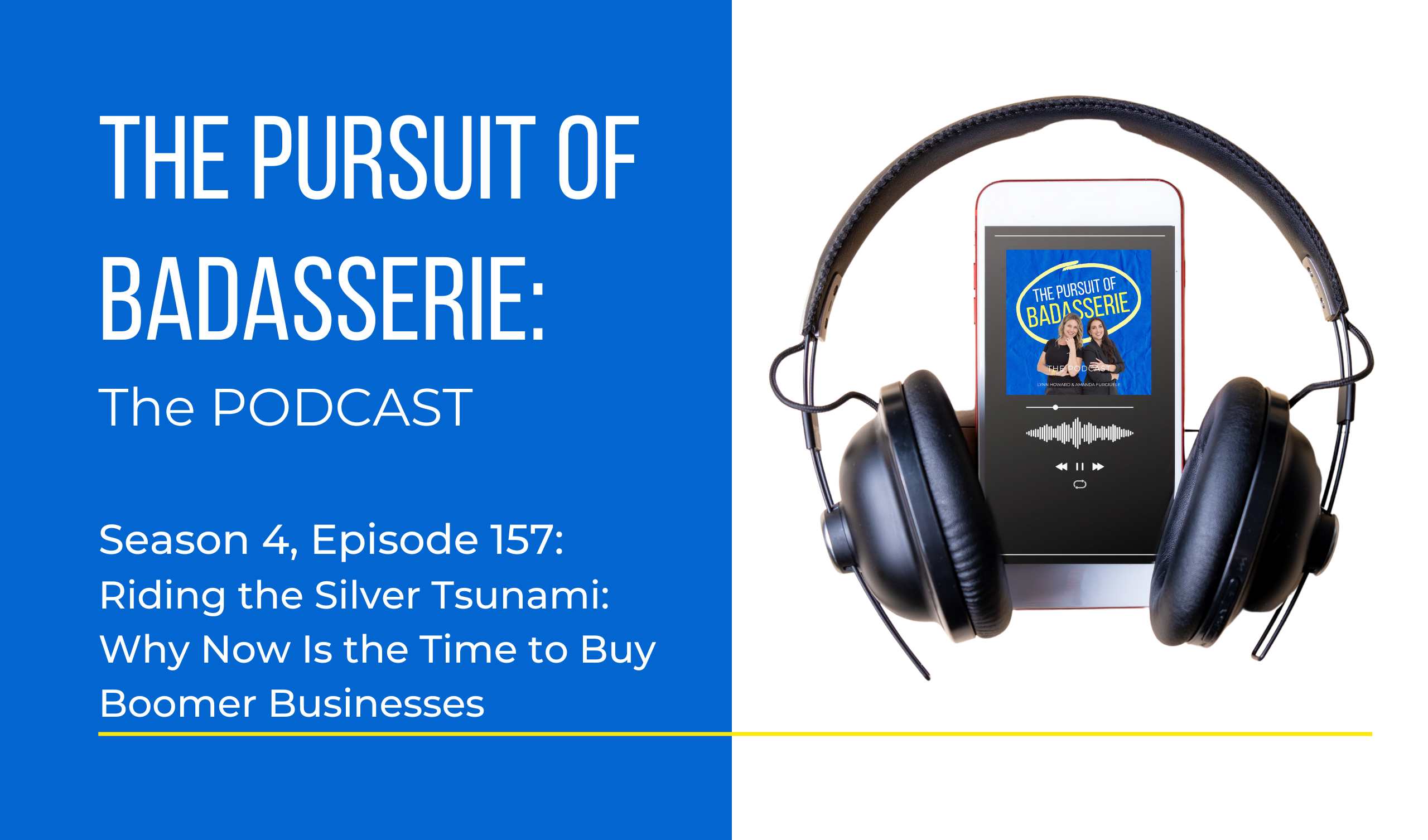
We cover:
- Why the wave of Boomer-owned businesses for sale is a golden opportunity
- Creative financing options (yes, you can buy without draining your bank account)
- What to look for in due diligence so you don’t buy a mess
- How to leverage reputation, culture, and legacy for long-term success
- Why boring businesses might just be your best bet for explosive ROI
You don’t need to be “passionate” about dry cleaning, auto repair, or textile manufacturing to make them work. You just need to recognize the opportunity, seize it, and play it smart.
If you’ve been waiting for the right time to diversify, expand, or step into entrepreneurship—this is it. The Silver Tsunami is here. The only question is: are you going to ride the wave or let it pass you by?
Make sure to subscribe to our YouTube or Spotify and leave us a review!
- Like the show? LEAVE US A REVIEW wherever you listen!
- Have a question? CONTACT US at info@thepursuitofbadasserie.com!
- Want to sponsor us? Find out how HERE.
…
Read the full transcript of this episode below:
Lynn Howard
Hey, I’m Lynn.
Amanda Furgiuele
And I’m Amanda. Welcome to the Pursuit of Badasserie, the podcast. Today, we’re talking about the silver tsunami, the baby boomers who are selling their businesses, how can you cash in on this and what does that look like for the future?
Lynn Howard
Yeah, absolutely. I think I was thinking of like the whole recycling aspect. Like last night I went out with a friend in Malaysia and we went to a very retro place and it had like old school things all up in it and a really cool library.
But like how they’re repurposing the old stuff. to on the back and I That’s true with businesses right now, if there’s so much opportunity to buy a business that, um, with the, all of the baby boomers exiting and the multigenerational, um, businesses that the kids don’t want to, that are going to die because the kids don’t want to take it over.
There’s so much opportunity at a fraction of the price, the potential of the possible, of it being at the fraction of a price because nobody’s there to take it over.
It’s just going to close. And so, and some of these baby boomers don’t even know that they can sell.
So there’s a lot of opportunity here to up businesses and even have them owner finance, which I know we’ll get into in a little bit.
So you don’t even have to like use your own money, um, but dang, that are already established, right? So it’s like buying an old home and fixing it up, um, and you can really make it, make it whatever.
Amanda
I think it was making me laugh. You’re talking about going to this, you know, going out with people. And I, we went to a museum, I think it was in, was it in Melbourne or Sydney that was, they had a nostalgic exhibit and it was all like toys from my childhood.
I’m like, Oh, I’m now a museum exhibit.
Lynn Howard
This is rough.
Amanda
But it’s the same idea that they’re repurposing something that already exists. And when it comes to these baby boomer businesses, I don’t think there’s a day that goes by that I don’t think about buying another business because I’m like, Oh, well, this one is for sale.
And this is a booming dry cleaning business, or they have, you know, a car washer, you know, and they’re not really what I would call my passion businesses.
And I think that’s where a lot of people are saying, they’re like, Oh, I don’t want to have a business.
It’s not my passion. Well, you know what? You have a lot of passion for something that’s making you money.
you, when you, when you’re acquiring a business, So that has established cash flow, you’re not building from zero anymore.
So you get existing customers, a lot of times existing processes, loyal staff. And then what you come in and do is give it a refresh, give it a revamp, maybe bring it back and bring it into the year 2025.
Maybe you’re adding social media, maybe you’re adding a younger look or younger, you know, new branding or whatever. There are lots of ways to refresh a business.
And there are a lot of the businesses that just really don’t need a lot in order to take an uptick in their revenue streams.
And again, what Lynn said is these are just because a business is closing doesn’t mean it’s a bad business.
A lot of times businesses close because, you know, maybe the owner is 75 plus and they’re just ready to be done and maybe they don’t have kids or maybe they have kids and their kids already have businesses or they have established jobs and they don’t want the business.
There are a lot of reasons that people close businesses and particularly in this like age 55 to 75. This, you baby boomer that are selling their businesses.
These are long standing businesses. And sometimes there isn’t a succession plan like family taking over. And this is a prime opportunity to take advantage of that with these proven business models.
mean, a business has been around for 50 years.
Lynn Howard
Why wouldn’t it?
Amanda
doing something, right? Doing something, right? So it already knows its strengths and weaknesses. And if the weakness happens to be something within your skill set, for example, I’ve seen a couple of business businesses where they took over and they just, you know, a new paint job and some social media, and they were able to increase revenue with that small amount of increase.
And I’m not saying that’s every business, but personal with some people that I know, it’s literally all they did was they brought it up into, you the year 2024 at the time.
So there’s less speculation around like what you’re going to do to make the startup work. It’s already working. So all you have to do is keep it afloat.
And there’s something. I mean, don’t I mean, like I said, I think every day about buying another business, another boring business, because their cash flow.
I mean, it’s incredible to see the cash flow you can see from these businesses.
Lynn Howard
Well, yeah, you touched on it, but a lot, not all. Due to due diligence, definitely have the valuation and make sure everything is like, you know, in the right direction.
But you touched on a couple of things that I want to dig a little bit deeper is, is these businesses, these legacy businesses, if you would, they need modernization.
They need to be brought up to date. And a lot of these baby boomer ones, maybe some are a little bit into technology, a little bit of this, but we talk about all the time and we have to, we have to call each other out.
And it’s great to have, you know, a partner to do this is because we get stuck in doing busy work that isn’t.
Putting money forward or moving the business forward, right? Excuse me. And think of a business that from the baby boomer age that is a bit more resistant to change than and not as agile as like the younger generations and different things like that.
There’s going to be a lot of busy work and a lot of clunkiness. Maybe they are on social media, but are they optimizing it?
You know, and though we’re talking about, you know, these are negotiating. Like you can negotiate the out of it, but this is what it needs.
needs modernization, whatever that is. Like you said, the fresh coat of paint or whatever, but bringing the tech to it, absolutely.
And the automation and the streamlining of things could bring it into the next level. The other thing was, I need to be passionate about it.
Yeah. Okay. Um, and it’s funny because a lot of, and. Well, I’m one that believes in living in one’s purpose and all of that, and I’m lucky, but that doesn’t mean that I can’t have other businesses that maybe are just fueling the ability for me to be able to live more in purpose and have more of a life.
And if you actually looked at the landscape of business and did an analysis of those that are actually making really good money and those that are building legacy long-term money versus those that are just like overnight successes and not really, like the ones who are overnight successes are super loud and out there.
And I’m generalizing and like, but it’s building on shaky ground there. Yes, they’re, they’re doing their business because they’re so passionate about it, but it’s, it’s an overnight kind of win or whatever this is.
And some maybe aren’t as much, I’m talking about the successful ones and those that are super successful that have invested in businesses that maybe it.
Isn’t their thing. I’m thinking of a story that I just saw on Instagram and I’ll share in a second, but isn’t it, isn’t their thing, but they’re making a killing because they were solving a need for that particular, for that particular problem in, in the, so it’s opportunity, right?
It’s where opportunity is. And so at the end of the day, you can build businesses and buy businesses by, by business that you’re not passionate about.
I love that you used, I think you said dry clear, but actually, um, uh, laundry services, cash cow, it’s cash cow or vending machines or different things like that.
And we are talking a bit more on the U S side. Um, I don’t know what the global ones that are like cash cows that actually can, but a lot of these businesses, even in Thailand, like I’ve done a lot of meetings with, um, families.
Yeah. Yeah. Yeah. So with the parents and then meet with the kids and the kids are like, oh, they want you to do this and do that.
And there’s just like this disconnect between like what the old school and the new school wants, and it’s going to kill the business.
Somebody can easily go in and swoop in, buy that business, because there’s no person who’s going to really take it over.
And it’s just, there’s money there. There’s money, money, money there. And it’s, I know I’m kind of rambling, but I’m super excited about this because this really is the age, the opportunity, you know, I love opportunities to buy a business and just tweak it.
And sometimes you get to keep the employees, depending on how you buy it and be able to have income right away because you can also own our finance and blah, blah, blah.
Amanda
And, you know, speaking of, of, you know, buying the employees, some support buying the employees, you know, That’s one of the things that creates this community value and the legacy value in general, even if it’s not your legacy, like let’s say it’s complete stranger you’re buying the business from, if you can preserve jobs and the brand and the community goodwill that it’s situated in, that’s already going to put you in a better spot than if you are building all of that from scratch, because you’re writing off somebody’s reputation.
And again, do your due diligence, you know, whether or not you want that reputation. But I think this is an incredible time to buy and you hear, you hear like, um, Cody Sanchez talks about this a lot.
Lynn Howard
For those of you who follow Cody Sanchez, she talks about this a lot.
Amanda
It’s actually her whole, her whole recent book is about buying businesses. So her, um, Main Street Millionaire, I believe it is.
She, her whole book is about buying new business or buying old businesses and like this, how millennials and Gen Z and investors can really make a killing off of buying these existing boomer businesses.
And there’s, it’s not to say that there isn’t a need for. New businesses, because there will always be a need for innovation, but that doesn’t mean you have to innovate from scratch.
You can innovate within a same industry, within a business that already exists, and cut out a lot of that overhead from, you know, the build-out and the equipment and hiring and all the stuff that a lot of people don’t know how to do when they start a business.
And as Lynn mentioned, there are a lot of different financing options that you can do. And depending, again, depending on the country you’re in, depending on your credit score, depending on the relationship you have with the buyer and like the willingness of the buyer, or sorry, the willingness of the seller, you can do things like seller financing, where you’re kind of, where the seller still holds the note, but then you’re, you know, buying it off of them slowly over time.
You can use, you you can get a business line of credit if your, if your credit score is high enough, you can get a $50,000 business line of credit with a brand new business that you’re starting up or with an existing business, if this business has been in business.
So for more than two years, it’s pretty easy to get a $50,000 line of credit, depending on your credit score, etc.
Again, this is from American side of things to finance that business. So you’re not even using your actual capital to buy these businesses.
There’s a lot of things you can do to become a business owner without really spending a lot of your own money and to have a model that’s already working and already has income coming in.
And it’s priceless. If anybody who’s ever started a business, you know how hard it is to get consistent revenue and to get to a place where you’re hitting all your numbers every month.
It’s hard to get there. That’s why most businesses fail in the first five years. So if you’re going to buy a business that’s already been through that five year period, I mean, you’re sitting on a golden opportunity.
Lynn Howard
Agreed. Um, I love that you talked about like even going to a bank or even investors because you already have proof of concept and market penetration.
So it is absolutely easier to use somebody. I’m buy buy And I’m not saying to take advantage of people, but I’m saying use your negotiating skills.
And you talked about the employees, but also like, there’s a mentorship that can come that you can leverage as well when buying a baby boomer.
Business. They’ve been in the industry for so many years. They have contacts in the community. They have a reputation.
So that is leverage in, I mean, unless they like, you know, have a bad reputation, but that then I would really second guess buying that business too.
We might be able to get a better deal and say new owners and all this other stuff. So it’s not a one size fits all, but there’s opportunity there to also utilize their reputation.
In a positive or negative way as well. So many opportunities in absolutely buying, buying the business, riding the silver wave or whatever it’s called, the silver tsunami.
Yeah.
Amanda
I love these things, the catchphrases they come up with.
Lynn Howard
I do too. So there are lots of different places that you can go to, buy, sell. I know you know different things, but, you know, if you’re looking into a business, just browse into the different broker sites that, where people are selling businesses, going to social media, selling business, family businesses.
If you want to get into a certain, let’s say, I know I’m thinking of this because of Thailand and the different businesses that I’ve done, but textile business, my Thai Indian families who own a lot of textile businesses.
And that, that industry is definitely. If you’re at the age of those people in that business and start reaching out to them.
Are you looking to sell your business? I’m looking to buy a business like yours. Right? So you can be as proactive.
It might not even be on the market. People have bought homes that are never on the market, right? Because they’ve just went and made an offer.
We don’t know. Like some people might not realize that they can sell their business. You know how many people don’t think that they have a sellable business?
And sometimes it’s only a thousand dollars to sell that business, depending on the business. Sometimes it’s a million, gajillion dollars.
Um, but you can absolutely be proactive, um, and, and like in people’s face and like really go after it.
Or you can start browsing in different arenas to see what’s available and kind of like what you would want to get into.
There’s so many different things, so many different things that you can do.
Amanda
And I’d say, you know, there are some best practices that you can think of when you’re looking into it.
Obviously, we’ve mentioned before the due diligence, like looking at their financials, looking at customer retention, looking at assets and liabilities and contracts and so forth.
that’s important when you’re looking at these, looking at a transition plan, like logically thinking about what the transition plan would look like.
And I, as Lynn mentioned, I would absolutely try to get the seller to stay on for at least a little bit of time, because that transfer of knowledge can make or break your business.
can leverage their reputation. Oh, absolutely. And I mean, think about your deal structure creativity. mean, do you want to do seller financing?
Lynn and I are bootstrappers, like we bootstrapped all our businesses. But there are seller financing. There options, there are investors, there are loans, are earn-outs, phase-out buy-outs, that kind of thing.
And then look at your cultural integration. So I’m not talking like your actual culture, I’m talking about the culture of your business.
So understand what makes that business work under the old owner and respect that as you’re moving forward, particularly if you’re taking on their employees.
What made that business work for so long? Because the last thing you want to do is buy a business and then everybody leaves because you suck and you haven’t really maintained that culture.
And then modernize, grow, you know, the growth opportunities, anywhere you can add the newness, the new products, digital marketing, you know, automations, those things that you can add in.
And then, of course, you know, legal and tax crap has to be done as well. But those are really, that’s all the things that you have to really think about when it comes to those.
What reflect. It’sirop The last thing I think about is whether or not it’s my passion, whether or not I love a dry cleaning business or an auto repair shop.
I don’t think that that’s a requirement for building a great business. And you can find passion of a lot of different things within your business that may not be the topic.
I mean, and I say case in point because not because of business, but as a mom, there’s a lot of things that I never thought I’d have to be interested in, but now are a passion of mine.
Like I never thought I would know so much about snakes, but now I do. Same thing with your business.
If you buy a dry cleaning business, you might think I’ve never had to think so much about the chemical properties of a dry cleaning business, but now you know.
So you can build passion in different ways. So for those of you who are kind of shying away because it’s not a passion project, those businesses can create passion and they can help you open
So don’t write off the silver tsunami. Don’t write off those businesses that are, quote unquote, boring businesses, because those are the bread and butter of whatever nation you’re in.
Lynn Howard
Yeah. Well, and it doesn’t have to be your full time. You can buy it, reinvent it, find the right people to kind of run it, and then you just are on the board, right?
So that way it’s diversification of your income. And a lot of people do that to compound their money. And your passion could be the zeros in your bank account, like after a big number, adding another zero, not zero as in zero zilch, but like five, 10, how many ever digits?
Amanda
know what I mean? I think a decimal place.
Lynn Howard
Yes. Yes. So go ahead. What did you take out of this? Like the silver tsunami is happening. This is opportunity.
We love opportunity. And this is time. Bye. If you want to diversify your business portfolio, take a look at what you can get.
And depending on how hungry you are or how much you want it, be as proactive or just kind of loosey-goosey.
I know Amanda often, she kind of just looks through the seller sites all the time, the business seller site.
So it’s an opportunity to jump on this silver tsunami. And I think that those that do, they’re going to see a return on investment, their ROI, so much sooner and bigger than what they could ever think of.
Like it’s, it’s an incredible opportunity right now to, and this is what smart. Well, even I would say smart doesn’t mean that they’re good.
Rich people do. They see opportunity. They take, they, they maximize that. Now is an opportunity. It’s kind of like when it’s a seller’s market versus a buyer’s market type of thing as well.
Like when I’m thinking of real estate, like this is the opportunity right now with the silver tsunami happening. so are you going to jump on it?
We want to know. Let us know in the comments.
Amanda
All right. As always, make sure you are liking, subscribing, hitting all those shiny buttons on all the sites and following us for more business badasserie.
Lynn Howard
Absolutely. Till next time, get after it.
